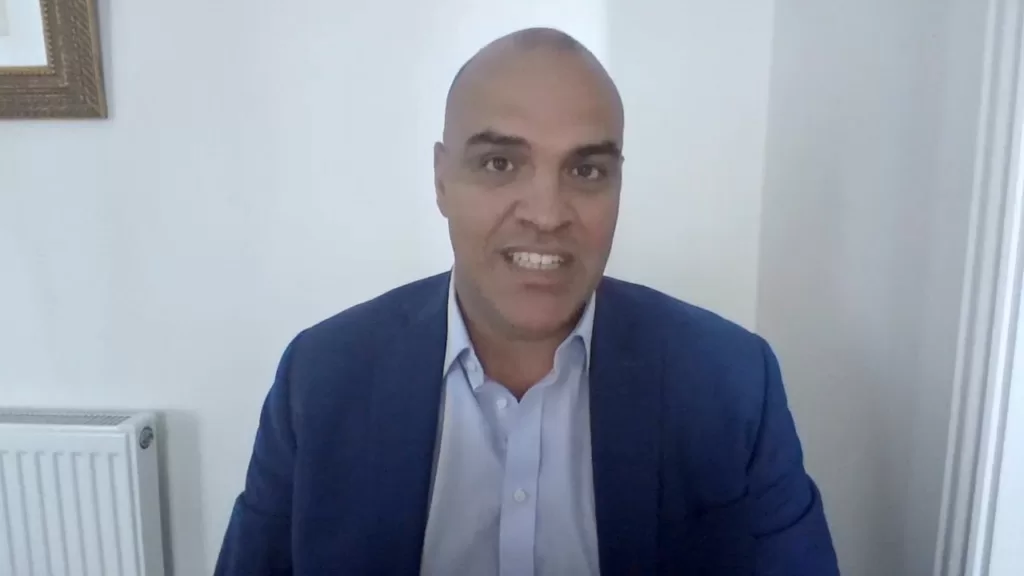Video: How do we address the needs of young people struggling with mental health problems?
The University of Sydney's Professor Adam Guastella says mental health needs to be seen in the same way as we see physical health conditions.
 The University of Sydney’s Professor Adam Guastella responds to the ABS data. : Suzannah Lyons and Michael Joiner, 360info CC BY 4.0
The University of Sydney’s Professor Adam Guastella responds to the ABS data. : Suzannah Lyons and Michael Joiner, 360info CC BY 4.0
The University of Sydney’s Professor Adam Guastella says mental health needs to be seen in the same way as we see physical health conditions.
Professor Guastella, who is a clinical psychologist, says most Australians would be quite concerned so many young people seem to be struggling with mental health problems.
What he finds surprising however, is the lack of support for young people to address their needs.
With the data clearly showing most people will experience a mental health problem over their lifespan, Professor Guastella says it’s really about trying to get the supports in place so that people have the skills to make the best outcome from having a mental health problem.
Transcript
Quotes attributed to clinical psychologist Professor Adam Guastella from the University of Sydney.
“I guess what concerns most people about the ABS data that’s just come out is the 38 percent figure on the 12-month incidence rate for mental health problems in young people aged between 16 and 24. I mean, by any measure that is a substantial amount of the population and I think it’s quite concerning for most Australians that so many young people seem to be struggling with mental health problems.”
“There’s been three reports like this over the last decade. And since 2007, there’s been a quite significant increase in the reports of young people having mental health problems. So we know back in 2007 it was around the 24 percent mark and now the rate is around the 38 percent mark.”
“So you know, the increase is significant, but also it was significant, the increase came in the previous report during COVID. So this report isn’t particularly startling because we had the large increase post-COVID in the previous report. But it does suggest that and confirm what we know as researchers and clinicians that mental health is the major cause of concern for young people and cause of burden for young people in Australian society.”
“What is, I guess, surprising to me is the lack of support for young people to address their needs.”
“So lots of young people are reporting great difficulty accessing support, even to the point of digital tools. We saw that seven percent of young people report using digital tools for support. And in this sort of society where young people are on their phones and use computers all the time, it really surprised me that they’re not getting high-quality supports using digital technology in the current day.”
“For too long mental health has being seen as something that if we can, we will address it and the impacts of mental health both on the individual, the family, across society, whether it’s education, juvenile justice, it shows that mental health is not if we can, it’s a we must address and it needs to be seen in the same way as we see physical health conditions.”
“And the government needs to support mental health strategies at a systemic level in a more serious way.”
“We speak to young people all the time that simply say they cannot see a psychologist, they cannot afford to see a psychologist, and they don’t know where to access the right amount of care.”
“So there’s a number of things that can be done to address some of those things. First thing is the Medicare billing rate has not increased for psychologists for about 10 years. It was about $118 10 years ago and it’s $124 today. And if rents had increased that much, if food prices had increased that much, we’d all be very, very happy. But they haven’t.”
“And so that’s meaning that most psychologists are charging a significant amount above the bulk billing rate, which leaves financially vulnerable Australians, which are typically young people, unable to access services.”
“The second thing we could do is both improving digital technologies and improving digital access to evidence-based supports. We don’t need influencers, media influencers, providing evidence about what works. What we need is reliable information about supports that can help young people deal with anxiety, substance misuse and other mental health concerns, and also as a source of truth that they can rely on this information and get the supports they need.”
Transcript
Quotes attributed to clinical psychologist Professor Adam Guastella from the University of Sydney.
“So we know that from a very, very young age, young women report high levels of anxiety.”
“We finished a study just recently in four- and five-year-olds showing women were reporting or girls were reporting much higher rates of anxiety than boys. And boys, of course, report more if you like, typical naughty behaviours and also aggressive behaviours from a younger age. That follows through throughout the lifespan.”
“What we really need are strategies targeting the different ways that girls and boys present with mental health concerns, seek help for mental health concerns.”
“We need different strategies to reduce stigma and also to promote mental health-seeking as an appropriate, acceptable and also admirable thing for people to do. And something that not only looks after themselves, but also looks after their families and the community by doing so.”
“So I think, you know, for too long we’ve seen mental health and young people see mental health as something that makes them weak.”
“And the data here clearly shows that most people will experience a mental health problem over their lifespan. And it’s not necessarily getting the mental health concern that’s the issue. It’s really about trying to get the supports in place so that you have the skills to make the best outcome from having a mental health problem.”
If this article has raised issues for you, or if you’re concerned about someone you know, visit https://findahelpline.com/i/iasp.
Professor Adam Guastella is the Michael Crouch Chair in Child and Youth Mental Health, based at both Sydney Children’s Hospital at Westmead and the Brain and Mind Centre, University of Sydney.
Originally published under Creative Commons by 360info™.








